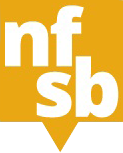Remembrance Day is very important to me. Both of my grandfathers participated in WW2, and my Nana was a war bride. Prior to this summer, however, I only had a limited understanding of the true human experience of war. I knew the facts, but I hadn’t seen the sights or heard the stories. This changed in June when I participated in the Canadian Battlefields Foundation tour in France. This experience changed my understanding of war, and highlighted to me the importance of remembrance. Last Thursday night, as I was reviewing my history lesson, I had a wonderful idea: what if I organized a Remembrance Day lesson at NOVA for my history students? I decided to create a Remembrance Day museum experience with one guiding question: What was it like to live through the world wars?
On Friday (last block), I pushed the tables together and organized 7 different stations. Three of them had packages of primary document replicas from WW1, the British home front in WW2, and children’s experiences of war. Another had maps and pamphlets that I had purchased while in France this summer. Another had my great uncle Harry’s war letters and passport replicas of WW2 participants, as well as my computer with my blog post from my trip (feel free to read it here: http://www.cbf-fccb.ca/they-walk-with-you-juno-beach-centre-june-8th-emilie-bowles/) and a Glenn Miller CD playing. The last table had a series of TIMES magazine books pertaining to WW2 as well as my Papa’s war medals and their descriptions. I also had videos playing that explained the causes and aftermath of both world wars in addition to video footage from these conflicts and interviews with veterans. I invited all staff who were still present that afternoon to come take a look.
I wanted everyone who attended this lesson to be able to freely move about the room and engage with something that interested them. I asked everyone who attended to fill out a post-it with a short message about what they learned during their visit. I was amazed at how many people seemed to really enjoy the experience, intently watching/reading/listening/discussing the resources in front of them. The two statements that were most often repeated were “Wow, I had no idea” and “This is so interesting.” (What wonderful words for a teacher to hear!)
Before I participated in the Canadian Battlefields Foundation tour, I had never seen how large a WW2 cemetery was, or thought about how many human lives each headstone represented. I hadn’t thought about the women left behind to worry and “make do” at home or the children whose youth was cut short. I hadn’t thought about how fortunate I was not to live my life in fear of bombs being dropped on my head or having a soldier appear at my door with a message that would break my heart. This is why it is important for us to educate our young people about these major global conflicts. We need to be able to understand why these wars broke out, and what their impacts were in terms of the economy, politics, geography, and human suffering/sacrifice. We take our peaceful lives for granted, when we should be thanking our lucky stars. We need to carry this knowledge with us as we grow in order to advocate for peaceful resolutions to global conflicts. Although I couldn’t take my students to France on Friday to learn about these important events on site, I could re-create something similar in my classroom and show them a glimpse of what so many people lived through (and continue to live through in other areas today). So, please, take a moment to remember and a moment to be kind to others. Trade your goodwill forward!
Emilie Bowles (Resource Teacher)
